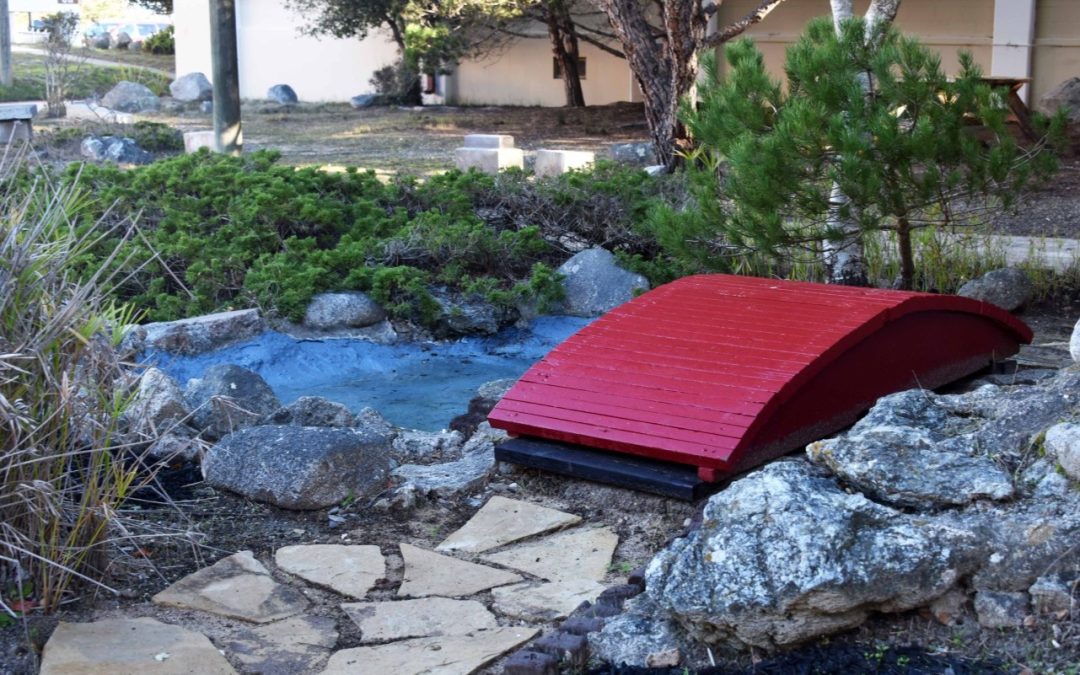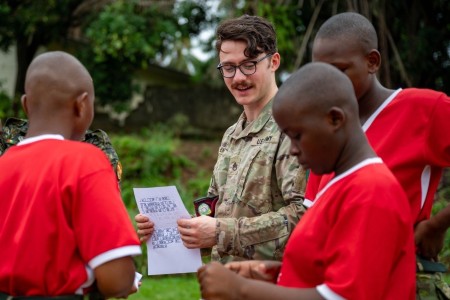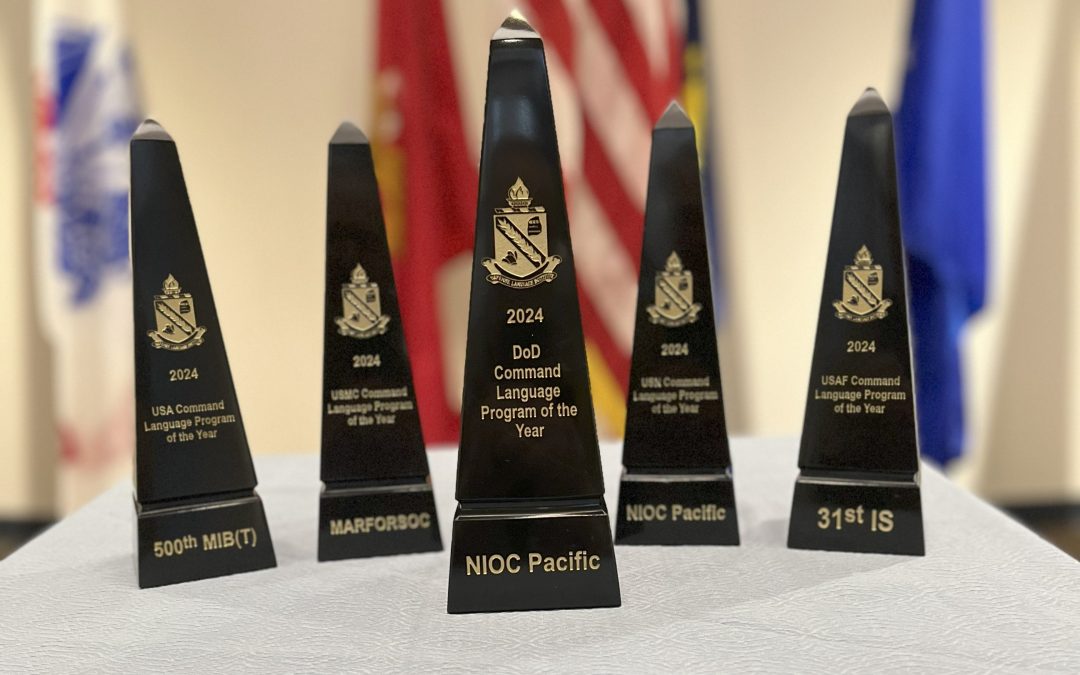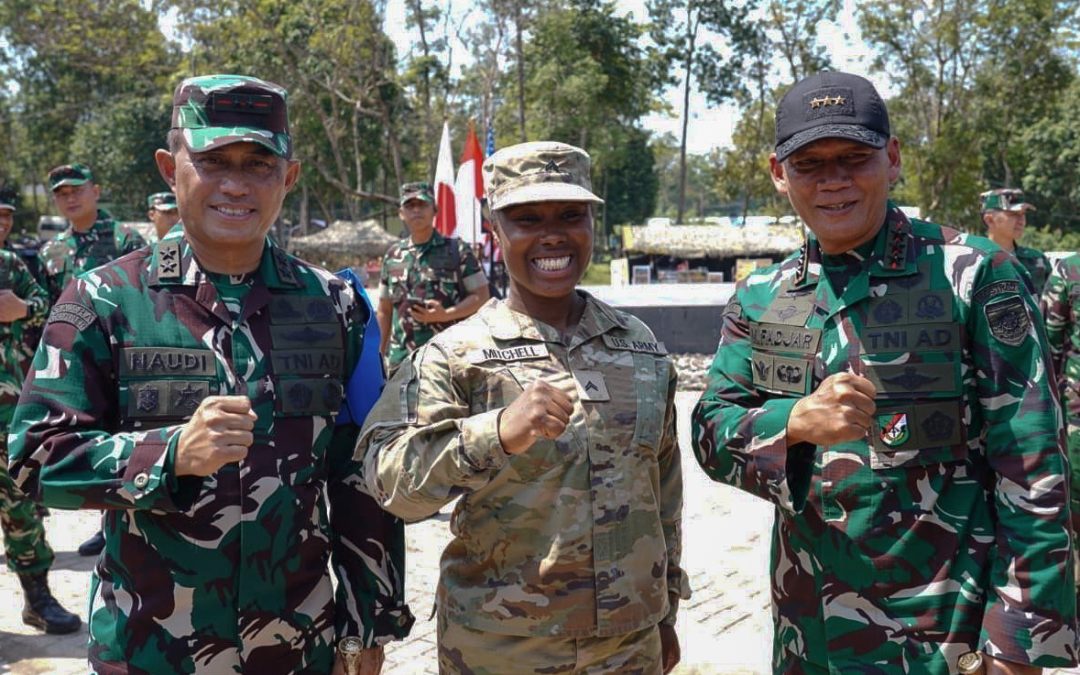By Patrick Bray
DLIFLC Public Affairs

Command Sgt. Maj. David Turnbull, the command sergeant major of the U.S. Army Combined Arms Center at Fort Leavenworth, Kansas, spoke at the Defense Language Institute Foreign Language Center, Feb.23, to NCOs of the 229th Military Intelligence Battalion about NCO professionalism. (U.S. Army photo by Patrick Bray/Released)
MONTEREY, Calif. – The U.S. Army NCO Creed states that “No one is more professional than I,” and to elaborate on recent initiatives to improve NCO professionalism, Command Sgt. Maj. David Turnbull, the command sergeant major of the U.S. Army Combined Arms Center at Fort Leavenworth, Kansas, spoke at the Presidio of Monterey Feb. 23.
“As we looked at NCO professional development we wanted to add relevance and rigor to make the curriculum applicable to what our NCOs are doing now and in the future,” said Turnbull, as he spoke with NCOs of the 229th Military Intelligence Battalion assigned as platoon sergeants, military language instructors, trainers or other leadership positions at the Defense Language Institute Foreign Language Center.
The Army continues to modernize professional military education in order to improve the quality of training, development and schooling that Soldiers receive. The NCO Professional Development System is designed to help the Army achieve its NCO 2020 Strategy, which establishes ends, ways and means for developing the current and next generation of NCOs. NCOPDS is not new. It began as the NCO Education System in 1971.

NCOs of the 229th Military Intelligence Battalion assigned as platoon sergeants, military language instructors, trainers or other leadership positions at the Defense Language Institute Foreign Language Center listen to Command Sgt. Maj. David Turnbull, the command sergeant major of the U.S. Army Combined Arms Center at Fort Leavenworth, Kansas, speak about NCO professionalism Feb. 23. (U.S. Army photo by Patrick Bray/Released)
Part of this effort places an emphasis on providing the outstanding training and education needed to conduct complex missions in the future. To achieve this, NCOs need “quality curriculum, quality facilities and quality instructors,” said Turnbull.
Emphasizing instructors, Turnbull spoke about the Army Instructor Badge. As an incentive the Army developed the badge in 2014 to professionalize Army instructors and enhance their standing.
“Here at DLI you have Military Language Instructors and they’re extremely professional NCOs. The instructor badge is one more example that NCOs can improve themselves and prove that they have taken the steps to be the best instructor they can be,” said Turnbull.
MLIs are qualified NCOs who teach students in their language and serve as an example to them. They bridge the gap between the military units and the civilian staff in all eight schools and languages taught at DLIFLC. The first Army Instructor Badges were awarded to Army MLIs in September 2017.
“Their students will look up and see that badge and know that their MLI has taken extra duties and steps and put in that extra work to become a subject matter expert in being an instructor,” added Turnbull.

Command Sgt. Maj. David Turnbull, the command sergeant major of the U.S. Army Combined Arms Center at Fort Leavenworth, Kansas, listens to students studying Russian at the Defense Language Institute Foreign Language Center during his visit to the Presidio of Monterey Feb. 23. (U.S. Army photo by Patrick Bray/Released)
Awarding the instructor badges goes hand in hand with the Army University construct that aims to maximize educational opportunities for Soldiers by providing valid academic credentials for the education and experience they receive while on active duty. Turnbull expects Army University to be a game changer in NCO professional development.
In addition to speaking about NCO professional development, Turnbull also learned about the online tools developed for students to access in and out of the classroom. Dr. Branka Sarac, director of Technology Integration, showed Turnbull some of the language training products produced by DLIFLC that are available for pre-deployment training, deployment use or refresher training.
“The technology they are working on out here is incredible. It’s interactive, it’s not one sided, you get instant feedback, you can follow your progression, and it’s convenient for Soldiers,” said Turnbull.

Command Sgt. Maj. David Turnbull, the command sergeant major of the U.S. Army Combined Arms Center at Fort Leavenworth, Kansas, listens to students studying Russian at the Defense Language Institute Foreign Language Center during his visit to the Presidio of Monterey Feb. 23. (U.S. Army photo by Patrick Bray/Released)
Turnbull would like to see these language and culture training products, which can be downloaded on mobile devices, used across the total Army as he spoke about the ever-changing role of professional military education.
The U.S. Army Combined Arms Center, organized under the U.S. Army Training and Doctrine Command, is the Army’s lead organization for doctrine, training, education, leader development and lessons learned.
As part of that, DLIFLC provides resident instruction in 17 languages at the Presidio of Monterey, California, with the capacity to instruct another 65 languages in Washington, D.C. The Institute has graduated more than 220,000 linguists since 1941.
In addition, multiple language training detachments exists at sites in the U.S., Europe, Hawaii and Korea, spanning all the U.S. geographic combatant commands in support of the total force.





